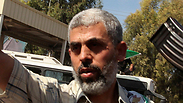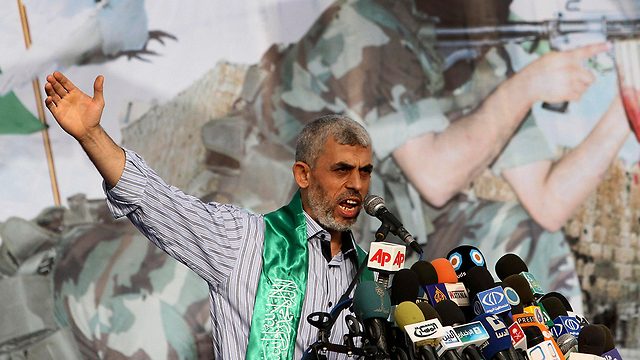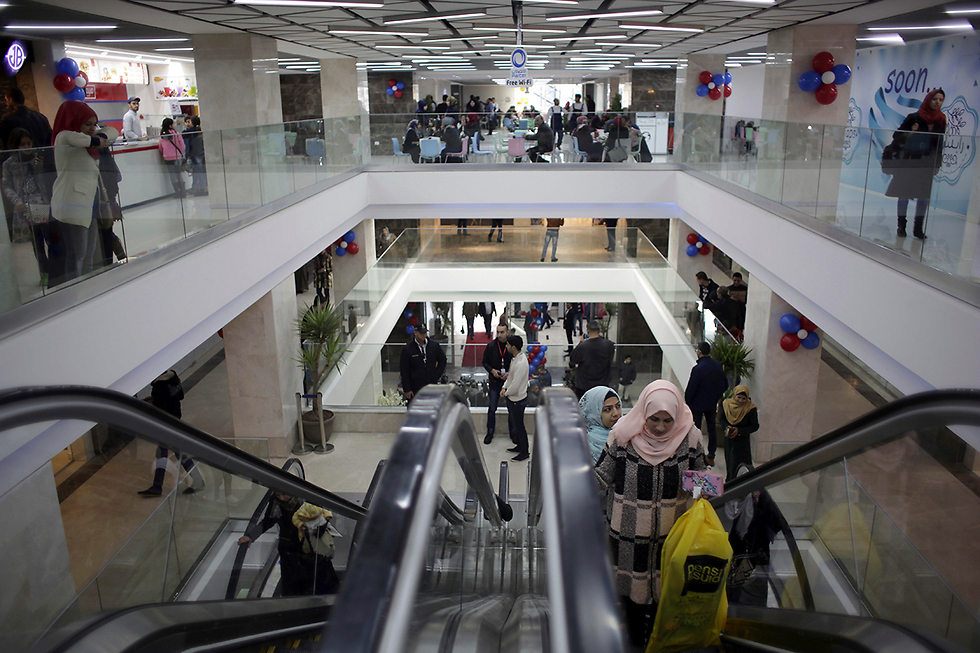
Is Gaza really headed towards a new conflict with Israel?
Analysis: Hamas leader Sanwar is not operating in a vacuum. In order for him to make a decision to attack Israel, there is a need for a radical development that will make it unequivocally clear that ‘both Gaza and myself have nothing to lose.’ At this time, however, both he and the Gazans have a lot to lose.
The apocalyptic predictions, which described how the “charismatic terrorist” was sweeping the strip into another round of serious violence, are only based on an evaluation of his hawkish personality and on his militant statements in the past. They ignore the basic fact that leaders in our era, even radical dictators, are no longer considered stronger than their people and their surroundings.

The era of the omnipotent “strong leader” is over. Tyrants like Saddam Hussein, Muammar Ghaddafi and Ali Abdullah Saleh of Yemen were removed from their seats a long time ago.
Egyptian Islamic fundamentalist Mohamed Morsi understood the rules of the game within a very short period of time. Syrian President Bashar Assad’s chair is also being rocked by the calls of oppositionists.
The leaders of terror organizations have experienced the same thing: Osama bin Laden was assassinated, and his al-Qaeda organization has been less active since then; Islamic State leader Abu Bakr al-Baghdadi is breathing the last breaths of his organization.
Notably, Hezbollah Secretary-General Hassan Nasrallah has been tweeting for a decade, “I will respond harshly against Israel,” before slipping away into his bunker, tweeting and escaping again.
Hamas leader Sanwar is not operating in a vacuum either. In order for him to make a decision to attack Israel, there is a need for a radical development that will make it unequivocally clear that “both Gaza and myself have nothing to lose.” At this time, however, both he and the Gazans have a lot to lose.
When his people informed him that only $613 million of the $3.875 billion that were pledged for Gaza’s reconstruction following Operation Protective Edge had reached the strip, he realized that the goodwill of the donor countries would only be forthcoming if Hamas could provide guarantees that its government would use the money to focus solely on construction and rehabilitation.
The World Bank, which promised to develop the strip, has also provided less than half the sum of the $3.5 billion it pledged, as it seeks to ensure that the reconstruction funds will not be invested in a military buildup or go up in smoke in a new flare-up.
Yes, the Gazans stand to lose from the renewal of violence. Granted, the unemployment rate is still high, 58% of the population has no stable source of income and there are still 65,000 families whose homes have not been rebuilt since the 2014 conflict.
Nevertheless, there is building and development momentum in the strip which has not been seen for a long time. Every day, some 200 to 300 Israeli trucks arrive at the Gaza crossings and unload huge amounts of food, construction material and commodities.

The Capital Mall was recently opened in the luxury neighborhood of Zeitoun, joining several other shopping and recreation centers which have popped up in the strip recently, pointing to a trend of “we want a sane life too.”
Tens of thousands of Palestinians who work in Israel and earn NIS 200-300 a day, compared to half the sum they would have earned in the strip, if anything.
These are the features of the desire to return to a routine life. The Palestinian people, even under Hamas, prefer bread over bombs.
So before Yahya Sanwar tries to present a “new outline” for the strip’s renewal—by, for instance, firing missiles at Israel—he will first have to overcome a number of difficult obstacles.
First, there is the Nasrallah syndrome which can best be encapsulated in his own words: “Had I known what the damage would be, I would not have started a war in 2006.” This war took Lebanon several decades backwards with the wave of a hand.
The there is the donor states factor and the World Bank’s threats to stop the flow of funds in case of a new armed conflict.
Moreover, there are the warnings issued by Egypt, Jordan and Qatar, which are explicitly telling Yahya that another armed round will precipitate the destruction of his regime once and for all. That’s a bit too much, even for a “charismatic, popular and vengeful leader” like Yahya Sanwar.
Dr. Colonel (res.) Moshe Elad is a lecturer at the Western Galilee College and has served in the past in senior positions in the territories.










